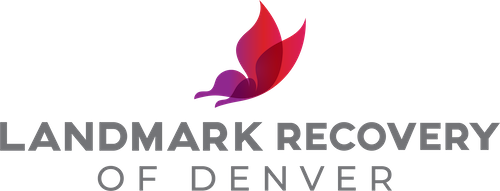Dual Diagnosis Drug and Alcohol Rehab in Denver, CO
Understanding the Complex Nature of Dual Diagnosis
Dual diagnosis refers to the concurrent presence of a substance use disorder and a mental health disorder in an individual. Substance use can involve alcohol, marijuana, opioids, hallucinogens, or prescription medications. Common mental health disorders that co-occur with substance abuse include depression, anxiety disorders, schizophrenia, and bipolar disorder.
Here are some real-life examples:
-
Alcohol Addiction and Depression
An individual struggling with both alcohol addiction and depression may turn to alcohol as a way to self-medicate symptoms like sadness and hopelessness. However, alcohol can worsen these symptoms over time, potentially leading to relationship issues or legal problems, which can further exacerbate the depression.
-
Opioid Addiction and Anxiety
A person dealing with an anxiety disorder may use opioids as a form of self-medication, creating a perilous cycle. Prolonged use of opioids can increase anxiety levels, particularly during withdrawal periods, and raises the risk of accidental overdose.
-
Methamphetamine Addiction and Psychosis
Chronic methamphetamine use can result in psychosis, marked by hallucinations, delusions, and paranoia. Treating someone with both a substance use disorder and psychosis requires a nuanced approach due to the severe and complex nature of these symptoms.

Getting help for a dual diagnosis has never been easier at Landmark Recovery of Denver
The Integrated Treatment Approach: Tailored to Individual Needs
The most effective strategy for addressing dual diagnosis is through an integrated treatment approach, combining substance abuse treatment with mental health services to address both issues simultaneously. This could include medications, one-on-one psychotherapy, group therapy, lifestyle changes, and supportive services.
Each person’s treatment plan must be customized, taking into account their specific disorders, symptom severity, personal circumstances, and treatment preferences. Group therapy can be particularly beneficial, offering peer support and helping individuals develop effective coping strategies.
Overcoming Barriers to Treatment
Barriers to accessing dual diagnosis treatment can include systemic issues like limited healthcare availability and societal stigma, as well as personal challenges such as denial or fear. Nonetheless, recovery is both achievable and expected with the right treatment. The integrated treatment model has demonstrated positive outcomes, improving not just symptoms but also overall quality of life.
Know the Terminology: Dual Diagnosis vs. Co-occurring Disorders
While “dual diagnosis” and “co-occurring disorders” are terms often used interchangeably, it is important to understand their nuances. “Dual diagnosis” is a broader term that describes the simultaneous occurrence of mental health and substance use disorders. “Co-occurring disorders,” on the other hand, is a term more specifically used within the addiction treatment field to underscore the reciprocal influence between the two conditions.
Your Journey to Recovery Starts Here
Navigating the complexities of dual diagnosis or co-occurring disorders can be challenging, but you don’t have to face it alone. At Landmark Recovery of Denver, we provide a holistic, integrated approach to treatment, customized to meet your unique needs. Our skilled team employs contemporary therapeutic techniques and supportive services to help guide you toward a brighter, healthier future. For confidential support available 24/7, call us today at 720-702-9994.
